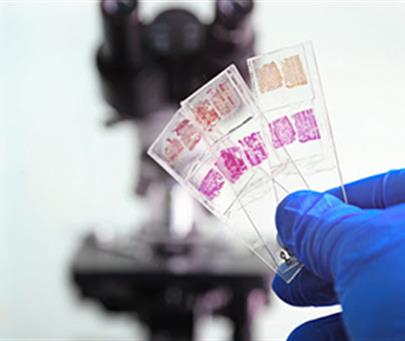An autopsy is the autopsy of a deceased or dead fetus by a pathologist to find out the cause of the death of the fetus. This matter has different stages, which include the following:
- Examining the appearance of the fetus,
- Weight and basic measurements,
- Examining the condition of the internal organs of the three cavities of the skull, chest, and abdomen,
- Visceral measurement,
- Sampling a small part of the intestines for microscopic examination,
Unfortunately, there is the fact that some pregnancies do not end. According to the studies conducted, 10-15% of pregnancies lead to miscarriage (the loss of the fetus before 20 weeks of pregnancy), and a smaller number are lost inside the uterus after 20 weeks of pregnancy. All these cases need to be fully investigated to recommend the necessary measures to the parents for future pregnancies.
This complete examination including karyotype evaluation, fetal radiography, microbiological examinations, and molecular genetics evaluations can also be used. In HopeGene Medical Institute, the specialized genetic diagnosis service, along with the fetal autopsy service, helps to correctly diagnose the cause of pregnancy loss or infant death. In this center, genetic testing is done with the new molecular cytogenetic technique, which does not have the limitations of the previous techniques, because the old methods were more likely to fail due to the death of fetal cells, but in this method, the time of death, the sterility of the sample, and its freshness are of little importance. It doesn't exist and most of the samples can be examined.
The necessity of examining the dead fetus or infant
The loss of a pregnancy or the death of a baby provides parents with various thoughts and worries. One of these concerns is the fear of pregnancy again and whether this will happen again or not.
At HopeGene Medical Institute, specialized genetic counseling along with fetal autopsy will help this group of parents in diagnosing the cause of the loss of the fetus or baby. Fetal autopsy as a diagnostic method can help parents to reduce fetal mortality in subsequent pregnancies and also reduce the psychological pressure on parents.
What are the benefits of the fetal autopsy?
By examining the dead fetus about 70-80% of the time, it is possible to find out the cause of the death of the fetus and in some cases, it is possible to prevent the recurrence of this problem in subsequent pregnancies.
This information includes the medical history of parents, other children in the family, and previous pregnancies of the mother, diseases during pregnancy and even before, medications taken by the mother during pregnancy tests, ultrasounds during pregnancy, and events during child, birth, or leading to childbirth.
What are the best conditions for a fetal autopsy?
- It is better to send the fetus along with the placenta and umbilical cord as soon as possible to the center where the autopsy is performed. The causes of fetal death can be related to the fetus itself, the condition of the mother, the placenta, and the umbilical cord, so this placenta is a very important part to be examined and it is better to send it to the center with the fetus.
- It is better to send the sample fresh and avoid placing it in alcohol, formalin, or any other fixative.
- The fetus and the fetus should be kept at the temperature of the refrigerator and transported to the desired center using an icebox to prevent tissue lysis at room temperature.
- If the placenta and fetus enter the fixative, genetic and microbiological tests cannot be performed, but an autopsy can be performed.
How many days after the death of the fetus is the value of an autopsy?
If there are congenital problems, an autopsy maintains its value, but with time, the probability of finding some disorders decreases. Cell genetic testing usually cannot be done after 48-72 hours after death. If molecular cytogenetic testing can be done in older samples as well.
Why are genetic tests necessary for abortion?
Considering the major contribution of chromosomal abnormalities in spontaneous abortions, in cases where these disorders are present, the probability of recurrence in subsequent pregnancies is different depending on the type of abnormality. In some cases, such as chromosomal aneuploidy, the risk of recurrence is low, and in cases such as chromosomal translocations, the risk of recurrence is very high. Therefore, identifying the type of fetal abnormality plays a decisive role in estimating the risk of recurrence as well as suggesting prenatal diagnostic methods in subsequent pregnancies.
In what cases can the genetic examination of the fetus help?
The presence of cases such as a history of repeated abortions, infertility, involvement of various fetal organs (numerous fetal anomalies), the presence of mentally retarded people in the family, etc. raises the possibility of chromosomal disorders. In such cases, genetic tests on the sample of the aborted fetus can be helpful.

